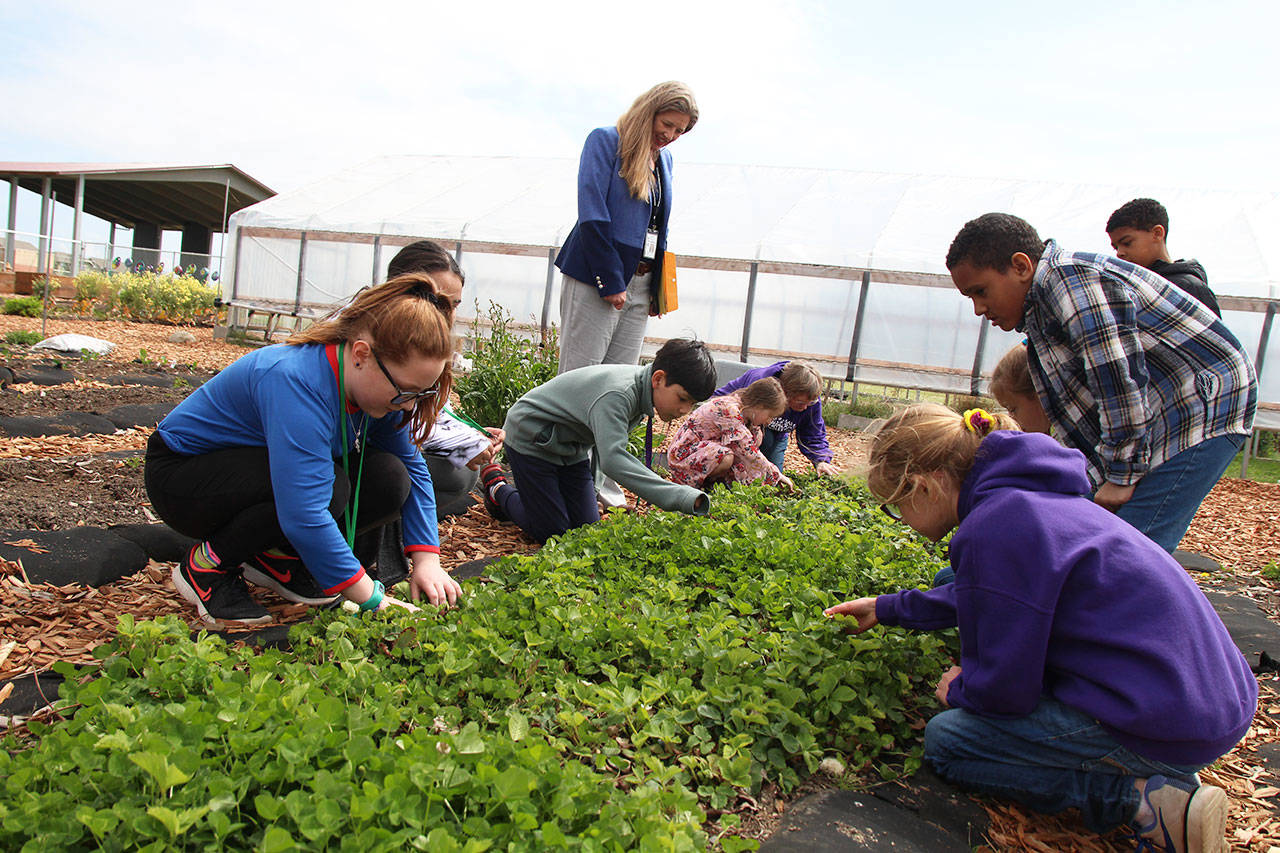It was clear the group of third and fourth graders really knew what they were talking about. The students’ knowledge of the school rain barrel, its “Enchanted Ecosystem,” the large garden and its composting bins are a testament to sustainability education implemented throughout Oak Harbor Public Schools, which was a major factor in the district being named a Washington Green Ribbon District.
Last Friday, at Crescent Harbor Elementary, schools Superintendent Lance Gibbon and a representative from the state Office of Superintendent of Public Instruction announced the award and explained that it meant the district would automatically be considered for the U.S. Department of Education Green Ribbon Schools Award.
Oak Harbor is one of three districts in the state to receive this award this year.
Students from the elementary school’s Green Team gave Elizabeth Schmitz a tour Friday of its green facilities, which she later said was an excellent example of the sustainability education the district was recognized for.
“Their education is really outstanding,” Schmitz said.
The program focuses on demonstrated progress and success in three pillars: reducing environmental impacts and costs; improving health and wellness of schools, students and staff; and providing effective environmental and sustainability education.
The multi-departmental efforts to change to propane-run buses, switch all the building lights to LED bulbs and the district-wide “zero-net-waste” goal also boosted Oak Harbor’s application, Schmitz said.
Gibbon thinks the district’s chances of getting the federal award are pretty good; he’ll find out for sure on May 22.
Program sponsor California Causalities presented Gibbon with a $1,250 check either to fuel the programs or send him to Washington, D.C. in acceptance of the award, should Oak Harbor win.
Washington Green Schools also recognized the district for outstanding sustainability work by awarding it the Green Medalist Award last week.
“I’m just really proud of the number of people that have come together to make all of these things possible,” he said. He noted the food service department, facilities, transportation and teachers all supporting the district’s various programs and efforts to reduce its carbon footprint.
Additionally, the garden and worm bin projects are supported by Island County staff, Master Gardeners and WSU Extension.
“It’s an incredibly unique and special thing that’s being done here,” Gibbon said, “and I’m really proud of what it means for the students and what they’re learning.”



